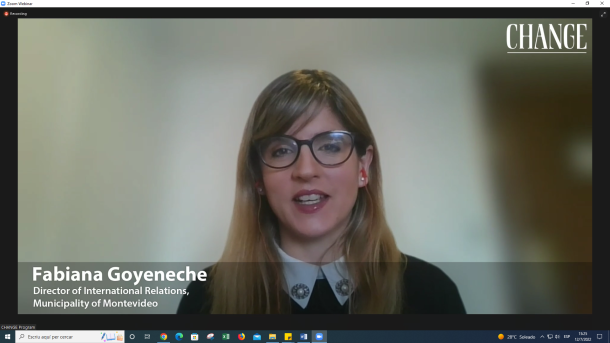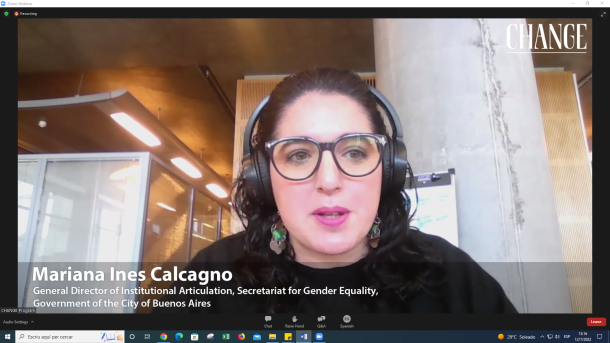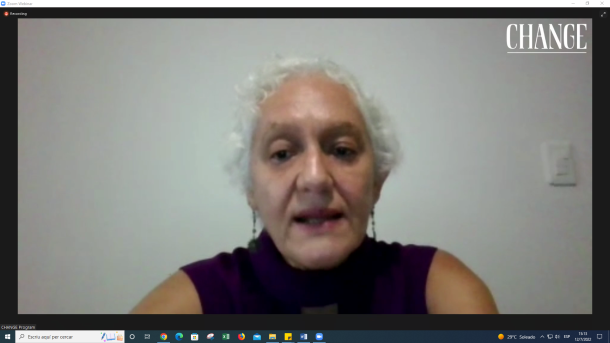


Voluntary Gender Review: the first step to a decisive action to gender equity
Last tuesday 12 July, on the margins of the 2022 UN High-level Political Forum (HLPF), the City Hub and Network for Gender Equity (CHANGE) & Metropolis, working in partnership, launched publicly the first ever Voluntary Gender Review (VGR). The online event was attended by the Intendencia de Montevideo, The Government of the Autonomous of Buenos Aires and México D.F. (Gobierno del Distrito Federal).
Women and girls in our cities continue to face high levels of discrimination that lead to the reproduction of economic inequalities (pay inequality), social inequalities (sexual violence in public spaces) and political inequalities (low levels of political representation), limiting their access to their rights.
Diverse needs and approaches must be incorporated into the public policies of our cities, for this purpose the development and compilation of gender indicators, that incorporate these invisible realities, is key.
In this sense, the VGR 2022 outlines concrete actions that local governments can take to accelerate and measure progress towards Sustainable Development Goal 5 (SDG5): Achieve gender equality and empower all women and girls as well as contributing to one of the HLPF's main talking points.
At the event, each participant provided remarks on a topic related to one of the four gender themes explored in the report: physical autonomy, economic opportunity, local governance, and built environment.
Furthermore, the panellists also discussed their experiences working at the intersection of SDGs beyond just SDG 5, exploring how working toward gender equality creates broader social benefit for all.
In this sense, Diana Alarcón González, Chief Advisor and International Affairs Coordinator of Mexico City, acknowledged the challenge of gender data collection, and urged to build an innovative and rights-based city through gender equality, putting women at the centre of public policies.
The second panellist, Mariana Calcango, General Director of Institutional Articulation of Buenos Aires, explained the system of indicators developed by the government to identify gender inequalities and to serve them as the basis for local policies.
The third and the last participant was Fabiana Goyeneche, International Relations and Cooperation Director of Montevideo and Metropolis representation, who emphasized the need to mainstream gender vision into all public policies as a true commitment to gender equity.
Local leaders have the opportunity to improve the lives of women and girls in our metropolises. There is an enormous potential to advance gender equality through the commitment of local governments and thus, to bring about quick and effective change at the grassroots level. The VGRs are a first step towards achieving this goal.
To learn more about VGRs, you can consult the document by clicking on the following link.

